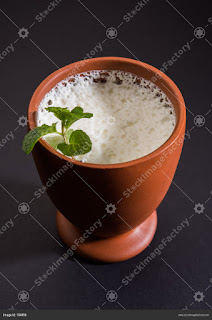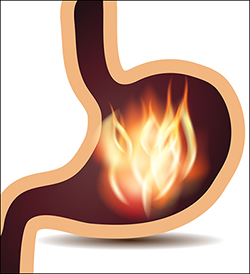Three pillers of healthcare-
Food, sleep and control of senses.
By DrKavitaVyas(Ayurveda consultant)
1.FOOD [AAHARA]
The food plays a very important role to maintain our physical and mental health. Saints saysThere are four sources of energy 1. Breath 2. Food 3. Sleep 4. Meditation”
 |
| Ayurvedic food |
So food is major source of energy.It is said that ‘food is medicine’-that means if we are careful about our diet then we can avoid so many diseases.Diet can be an effective treatment in itself. Though dietary results are slower to manifest, over a period of time they are as certain as that of herbs. Dietary treatment is usually the safest therapy. Wrong diet is the main physical causative factor of the disease. In its constitutional approach ,Ayurveda emphasizes correct diet for the individual.this is the main factor in long term treatment of the physical body,called in Sanskrit , annamaya kosha , the food sheath.
In vedantic philosophy the mind [manomaya kosha] is considered to be the essence of food .Uddalaka Aruni, a famous ancient sage explained ‘ the food that is eaten is divided three fold. The gross part becomes excrement the middle part becomes the flesh and the subtle part becomes the mind.[Chhandogya upanishada VI. 4.1.]. There is a saying “Aharshudhou satva shudhihi” –means If we take the healthy diet then mind will also become healthy.what we eat affects our emotions and can creat a predisposition for both psychological and physical disorders. Just a wrong emotions can upset our digestion, so wrong digestion can also upset our emotions.
Uddalaka Aruni also tells us “the water.,that drunk is divided three fold. The gross part becomes urine,the middle part becomes the blood,the subtle part becomes the life force[Prana]” .[chhandogya upanishada VI.4.2.] Hence what we drink is also nourishes our life force and there by derange our emotions and thoughts.
Ayurvedic principles about Diete
According to Ayurveda food care includes right preparation of food,right combinations of food, right amount of food, right frequency of meals and right times and places for eating. Right emotional and mental state is necessary.Good food taken in a bad mood or ill humor can cause diseases. Also important is right attitude in the person preparing the food, cooking should be done with care and good feelings.
In charka samhita –It is said that one should eat in a proper quantity, according to strength of his/her digestive power. The quantity of Food for a person is that which gets digest in time and do not disturb his/her natural health. One should eat the food which is heavy to digest till ½ stomach get fulfilled, not more than that. Also the food which is light to digest should not be eaten to much, there should be some space in stomach for water and air.
Thus when a person takes proper amount of food that food does not disturb his body constituents and it gives strength, health and long life to that person.
Following food items are good to take daily-The rice which grows in 60 days, brown rice,green gram,black salt,Amla[emblica officinale],Barley flour,pure water,ghee[butter], milk and honey.
According to Acharya Charka-One should not eat yoghurt in the night time.
One should not eat yoghurt after heating it, one should eat it without heating.
One should not eat yoghurt without ghee[clarified butter],without suger, or without mung legume, or without honey, or without mixing amla[embalica officinale].If one doesn’t follow the rules about eating yoghurt and eat in whatever manner he wants then it may cause fever, skin disease, jaundice, delusion etc.
 |
| Preparation method is also important |
In Charak Samhita – Eight factors about food are described [Ashta ahahra vidhi visheshayatan] which affects our health-
1.Natural quality of food[prakruti]
2.Preparation [karan]-In this how food is prepared? In what vessel it is prepared, with what emotion it is prepared.
3.Combination [Samyoga]-In this ,what other materials are mixed in food preparation all these things comes.
4.Quantity of food taken[Rashi]
5.Habitate [Desha]-Where person is staying that region has to be consider.
6.Time [Kal]-Which season is there[summer or winter etc]
7.Rules of use [upyogsanstha]-One has to follow general rules of taking food as described above.
8.User [upyokta] - the person who is taking food, what is his prakruti, and what is his physical and mental state. All these are important before deciding menu of meals.
SATVIK, RAJASIC AND TAMASIC FOOD
Classification of food here follows the three gunas or qualities of primal nature.
Satva-is pure, light, clear, calming, harmonizing, opens the mind, and promotes wakefulness.
Rajas-is cloudy, agitated, turbulent, energizing and disturbs the emotions.
Tamas-is dark heavy and dulling and promotes lethargy. It closes the mind.
“From satva is born knowledge, from rajas greed, from Tamas is confusion, delusion and ignorance.” [Bhagvat gita-14/17]
Sattvic or yogic Diet
Sattvic diet was originally devised for the practice of yoga and the development of the mind. It is good for those who use their minds a lot, as it improves mental quality and energy. Moreover it is important in the treatment of mental disorders, as it helps to restore harmony and balance.sattvik diet is a generally healthful and balancing diet, safe for all three humors, though the diets for humors can also be modified, along sattvic line. However as sattvic diet is for improving the mind, it may not be nourishing enough for those who have to do physical labor. It sensitizes the mind and gives greater sense of sympathy and compassion.
Sattvic diet consists only of pure foods, light in nature mildly cooling in energy that does not disturb the mind. Only foods rich in the life force or prana are to be taken. These include organic fresh food and vegetables. All foods produced by the harming living beings are to be avoided, such as meat and fish. Foods prepared in toxic environment or with an excess of chemical fertilizers or sprays are to be avoided.
In Bhagwat Gita Lord Krishna says- The food which is capable of increasing span of life, increases Sattva, strength, health, happiness and delight at the progress of others. The foods which are juicy, prepared with Ghee [butter], nourishing and likeable to heart are dear to men of sattvic temperament. [All these foods are sattvic]
Fruits-are sattvic in nature. [Some yogis avoid heavy sweet fruits such as Banana]
Vegetables-Most vegetables [green vegetables] are good for a sattvic diet, though not as much as fruits. [Some people avoid cabage, cauliflower, potatoes and mushrooms].
Grains-Grains like fruits are sattvic in nature. Especially rice [ Basmati and brown rice].Wheat and oats are also good. Grains are better in winter season or when more physical strength is required. Whole grains are preferable but breads are also sattvic.
Nuts- Almonds, pine nuts and walnuts are particularly good. As nuts are a little heavy they should not be taken in large quantities at a rime. Nuts and seeds becomes tamasic easily [when more roasted and deeply fried]
Dairy products- Milk and butter milk is good. Yoghurt is also good but is a little heavy and should not be taken in excess, as it can clog the channels. Cheese is very heavy so it is not recommended. Ghee [cow’s clarified butter] is also sattvic because it promotes intelligence and perception.
Oils- Seasam oil, coconut oil are sattvic .Also olive oil [not with garlic]
Sweeteners- Raw sugar, honey, and jaggery are sattvic. Honey when heated is said to be become toxic. It is said that sweet feeds Shakti.
Spices- Most spices are rajasic, but a number of exceptions exist. Sattvic spices include ginger cinnamon, cardamom, fennel and coriander, as well as turmeric. They help to balance the effect of to much fruits, dairy products or too much fat. Black pepper and long pepper helps to dry the mucus and keep the channels open. Here rajas is used to counter Tamas, thus producing sattva indirectly. Salt is to be avoided, except in the summer or in the hot climate.
Hot drink- Milk, herbal tea, green tea can be taken.
Rajasic diet
Rajasic and tamasic foods are not generally recommended, as they disturb or dull the mind and produce diseases. We should understand them in order to avoid them.
Rajasic food aggravate vata and pitta [air and fire], Rajasic foods cause hyper activity , restlessness, irritability, insomnia, increase toxins in the blood, cause bleeding and may promote hypertension. Rajasic foods include most over tasty food. It is excessively spicy, salty and sour. Most fried or roasted and salted food is rajasic.
Vegetables- Garlic, onion, radishes, chilies are rajasic and tamasic.Cauliflower, cabbage, mustard are rajasic or gas forming.
Beans- Beans are usually rajasic in nature. Exceptions are mung beans.
Spices- most spices are rajasic.
Hot drink- coffee and tea is rajasic in nature.
Pickles, vinegar, sour cream are rajasic in nature.
Meat is rajasic.
Tamasic diet
Tamasic foods increase kapha and ama[toxin] dosha. Tamasic food causes hypoactivity, lethargy, apathy, excess sleep.
Tamasic food is food which is stale, recooked, artificial, greecy or heavy. It includes mushrooms, more quantity of roasted and salted nuts, refined sugars, meat, fish, and animal organs. Most canned foods. Excess intake of fats, oils, pastries etc is tamasic.White sugar and white flour has a long term tamasic effect. Food that is too cold is also tamasic.Onion and Brinjal are also tamasic vegetables.
SIX TASTES [RASA] AND QUALITIES OF FOOD.
Rather than approaching diet from the stand point of calories or particular nutrients in food s as is done in the west, an ayurvedic diet is based more on the intuitive sense of the, what is attractive to individual by smell, taste, temperature and texture. Trusting that when the body is healthy it will attracted to the foods which is more appropriate for it self.
Food in ayurveda are classified by their qualities or gunas and taste or rasa.There are six main gunas. -vy[guru],light[laghu], dry[ruksha],oily[shlakshna], hot [ushna], &cold[shit].
There are six rasas or tastes.-Sweet [madhur], sour [amla], salty [lavana], bitter [tikta], spicy [katu], astringent [kashaya].
However all tastes and qualities should be present in one meal the portions of each varying to balance the dominant dosha of the individual. Paying attention to the gunas and taste in your meals helps you to easily plan the perfect meal .Use your imagination, intuition and intelligence when planning a meal.
Precautions to be taken
-Wash your hands and face before eating.
-Take warm, easily digestible food. Avoid stale or refrigerated food. Include seasonal fruits in your diet.
-Foods are primarily heavy or light; it can be made lighter through the use of spices or by consuming less. Foods also are drying or moistening. They can be made dried by evaporation or dry preparing them; they can be made moist by the addition of liquids or oils.
-Avoid acidic food. It is harmful to the entire system. Everything in the human body is alkaline in nature.Non – vegetarian food is highly acidic and very hard to digest. Avoid them. Be on a vegetarian diet. Fruits and vegetables are digested in a short time. Most fruits and vegetables are alkaline. Vegetables contain natural salts, minerals and vitamins. The fibres in the vegetables are very good for digestion.
-Avoid fast food, instant food, junk food and coke.
-Avoid unsaturated oils, white bread, white sugar and tinned and canned foods as far as possible.
-Avoid the use of Aluminium vessels. Steel and copper vessels are better.
-When there are any signs of improperly digested food or ama, such as bad breath, heavily coated tongue, gas, cloudy urine, nausea, or digestive upset, it is best time to clean the system and balance itself by fasting for a day or skipping a meal until a sense of appetite returns.
-Proper fasting (once in a week, a fortnight or a month, depending on one’s general health, prakruti e.t.c.) is good. It helps to cleanse the system. Drink lots of fruit juices, tender coconut water and other fluids on the days of fasting.
-The importance of water has not to be neglected. But do not drink water an hour before and half an hour after food. Drink maximum half a glass of water immediately after food.
-Do not eat anything before sunrise and late night, after 11 0’clock.as far as possible. Include lots of fruits, vegetables (cooked and uncooked) in your diet.
-Chew the food properly. Do not eat too fast or too slow.
-Eat in a calm, quiet atmosphere. Meal should not be taken when nervous, anxious or afraid .When excessively thoughtful or worried.
- Attention should be given to eating, watching television, reading or other forms of nervous stimulation should be avoided during meal. Do not engage yourself in any serious conversation while eating. Sit with the eyes closed and relax before you start eating.
-Eat alone or with friends and family in whose company you can completely relax. Eat in a quite, clean place. Facing east when eating maximizes the energy of digestion.
-Listen to classical music or Indian music, or other soothing music which will be helpful in setting the mood for dining.
- Sip warm water with your meal to aid digestion. Never drink ice water or milk with your meal.
-Use ginger to help in increasing your appetite. Eat food of all six tastes. [Sweet, sour, salty, bitter, spicy, astringent].
- Eat local, seasonal fresh fruits & food whenever possible. Avoid excess sour or fermented foods, especially yeasted bread.
- Food needs to be tasty and easy to digest. Food needs to be taken in proper amounts - not too much or too little.
- Give thanks for what you are about to eat and extend that good feeling in to your food. In India before eating generally spiritual people chant a verse from Bhagwat Gita which means The food is Brahman, one means by which it is going in the digestive fire is also Brahman, the digestive fire it self is Brahman, act of eating is also Brahman, the person who is eating is also Brahman, such a person is established in Brahman, while performing actions the goal to be reached by him also Brahman. [The original verse is written in context with yagna]
Food has to be given reverence. Food is more important than medicine. If we eat the right food, the need for medicines does not arise at all.
Above all, enjoy the food, whatever it is!Give thank at the end of the meal. Clean the mouth, rinse the eyes, and take a short walk.
Water
We all know that water is important but I've never seen it written down like this before. Even MILD dehydration will slow down one's metabolism as much as 3%.
One glass of water shuts down midnight hunger pangs for almost 100% of the dieters studied in a U-Washington study.
A mere 2% drop in body water can trigger fuzzy short-term memory, trouble with basic math, and difficulty focusing on the computer screen or on a printed page.
Drinking 5 glasses of water daily decreases the risk of colon cancer by 45%, plus it can slash the risk of breast cancer by 79%, and one is 50% less likely to develop bladder cancer.
Are you drinking the amount of water you should drink every day?
Dietetic incompatibilities.[viruddhahara]
Acharya charaka has described 18 factors regarding Dietetic incompatibility.
1.Climate [Desha]- If one eats hot and spicy food material in hot and dry country or cold and oily food in cold and moist climte, then it will be injurious to health.
2.Season [kala]-e. g. in summer season if one takes hot , spicy and pitta aggravating food then it will be having negative effect on one’s health.
3.Digestive power [Agni]- If one takes more or less food according to his/her digestive power then it is also harmful for the health.
4.Measurement[Matra]-eg. If one takes honey and ghee[clarified butter] in equal quantity then it becomes toxic, one should mix 3 parts of honey and one part of ghee or vice versa.
5.Adaptability [Satmya]-Whenone person becomes habitual to certain kind of food & if he takes now apposite type of food then it affects his/her health.If some body used to take spicy and hot food then for him food with sweet taste will not be suitable.
6.Body humour[dosha]-The food which aggravates the same dosha which is already dominant in person’s body , that food is harmful.
7.Preparation[sanskara]-e.g. when honey is heated with water, milk or any other material it becomes toxic. So the way of preparion is also important.
8.Potency [virya]-When the food which is cold by its nature is taken with the food which is hot in effect then it will also be harmful for the body e.g. just after ice cold water you drink hot coffee, it will affect your throat .
9.Bowel habit[koshtha]-E. g. a person’s is habitual to constipation and he takes oily and heavy food material then it will affect his stomach or a person who easily get loose motion and if he takes lots of milk then it will be harmful for him because more milk causes loose motion .
10.State of the person [avastha]-the person who is doing laborious work and he takes vata aggravating diet or the person who seating idle if he takes kapha aggravating food then it will be harmful.
11.Order of eating[krama]- If the person eats before passing his stool and urin or without having proper apetite then it will be not a proper order of eating.
12.Things to be avoided[Parihar]-e.g.If the person eats hot and spicy food and on that he drink hot coffee it will aggravate pitta.So this this will be improper way, one should avoid it.
13.Rules of medication[upachara]-If the person eats oily and fried food and drink cold water afterwards, then this will be apposite to the rule of medication, because ayurveda says after eating oily food one should take hot water.
14.Cooking[paka]-food which is half cooked or improperly cooked is harmful for the body.
15.Combination[samyoga]-e. g. if one eats lime with milk or honey with any hot drink then it will be an improper combination.
16.Palatibility[hridya]-the food which person doesn’t like will not get digested properly because mind has its effect on digestion so one should take food which he likes.
17.Richness of quality[sampata]-If person eats the food material which is not riped properly or over riped[rotten] then it will be not good for health.
18.Rules of meal[vidhi]-If a person doesn’t follow the rules of meal, takes meal at whatever time and in whatever manner then it will be harmful.
 |
| Sleep is important |
2. SLEEP [NIDRA]
Sleep is such an important source of energy that if you don’t allow a person to sleep for couple of days, he or she would become mentally imbalance. In sleep or in meditation only one can go away from body level and can rest. Some time when sleep is not that much sound then person see dreams. Some time dreams may give you an intuition about future’s incident. But generally dreams are our hidden desires which are coming out of our subconscious level. So in this way dreams also empty your subconscious and make you feel lighter. So don’t pay attention on dreams. My Gurudev Pujya sri sri Ravishankarji says “whole life is like a dream whatever happened today will be a dream for you tomorrow, it has passed. What will happen tomorrow will also get passed, so there is nothing to be serious in life.”
Sound sleep is necessary for healthy body and healthy mind.
For getting sound sleep you can take help of following things-
-Go to bed on a fixed time every day, better to sleep early if you want to wake up early.
-Before going to bed take a long walk, if your body allows doing so. Sleeping just after dinner is harmful for the health.
-Wash your face and feet, clean your teeth before going to bed, it will be helpful in sound sleep.
-It is good to give gentle massage to your feet; it improves eye sight and gives sound sleep.
-Relax your body before sleeping, pay attention on your different organs and relax them, while lying on the bed, this is called as yoga nidra.
-You can watch your breath for 2 minutes and you will get a sound sleep.
-For some people listening Indian classical music /bhajans [devotioanal songs] also help to get sleep.
-In ayurveda medicines, ashwagandha or brahmi are helpful in giving a sound sleep.
-Taking one glass of hot milk is also helpful to get sound sleep for some people.
In ayurveda only in summer season day sleep is prescribed. In other season if person sleep in day time, it aggravates Kapha doshas in the body. In the same way sleeping during sunrise and sunset is not good for body and mind, because according to Indian tradition these times are good for prayers and meditation. Sleeping too much or sleeping too less both are harmful for the body. There should be balance. Generally for adults six hour to seven hour sleep is sufficient. For the person who are doing meditation and yoga 4-5 hour sleep is enough, because their mind is already relxed.For students 8 hour sleep is require because their body is still growing and in sleep body grows more.
Person who does more thinking work or mental work they should get up early and do the work instead of waking up at nights.Before sleep what we think becomes the first thought of next morning, and it remains whole night in our subconscious level, so better to think some thing good or read some spiritual books before sleep because next morning is your new birth. You are new totally.
3. CONTROL OF SENSES [BRAHMACHARYA]
WE all have come on the earth as bundle of energy, to perform certain special work. When you see a child you can understand this easily. A child is so much active, he will move his hands and feet, or he will laugh using his whole body, the child is reflecting God, the reason is till now he has not wasted his energy in unnecessary thinking, watching television or films, listening loud music, tasting good hotel foods, or talking unnecessarily and having relationship with other sex.
All our energy mainly goes out through these mediums, brahmacharya [control of senses] means to stop this outward flow of our energy and turn this flow to inside for achieving the ultimate goal of one’s life that is self realization.
I am not saying that one should not see television at all, or should not listen to music at all or should not have good food. No.. No.. One can enjoy all these things in a limit. But when you start observing that when you take satvic food your efficiency increases, your thought pattern changes, your decision taking becomes more clearer or when you talk less in the office you avoid unnecessary conflict with the co-staff, and by this less talking you are getting mental peace and also when you not watch television before going to the bed then that night your sleep is more sound and next day you feel more fresh, more energetic. Then your journey towards the self begins, at least now you are aware that you have so much energy inside you.
According to Ancient Indian philosophy we have eleven senses [Indriyas]Eleven Indriyas [5+5+1] are as follows-
Five Gyanendriya [Organs of perception]- Eye, Ear, Nose, Tongue and skin.
Five karmendriya [Organs of movements]-These are Organs of speech, Upper limb, Lower limb, Reproductive organ, Excretory organ.
One Manah [Mind-which works as both gyanendriya and karmendriya]-The detail about mind will be given later
Proper use of these senses gives long and healthy life. There is no need of suppressing the urge of senses but one can use them in a balanced way by help of self control. Or using his/her discrimination power [viveka].
Actually desires a rise in mind, and this mind is the only one who involved with sense organ to enjoy a particular thing. So for controlling the senses one has to learn how to control your mind. Mind again works according to your intellect so to control the desire your intellect should be pure which can differentiate between good and bad, this is called discrimination [viveka].For pure intellect good company and sattvik food is necessary. There are number of factors through which you can control your mind like-
Taking satvic food, Reading good literature, Having Company of good people or sages,
Having sense of contentment, following social regimen [described in separate post],
Doing yogasanas, pranayam and dhyan. [About these things detail information will be given in other pages of yoga .}
See related youtube video below
See related youtube video below




![ACHARA RASAYAN in Ayurveda [Behavioural regimen which acts as Rejuvenation]](https://blogger.googleusercontent.com/img/b/R29vZ2xl/AVvXsEgWmm8CupFTu_vyWDtEsY9EdG8A-ZlQLOdx6lrm4qnctDJ1bli1zR7MQMebwL79XhXowikAcqIk-al0sQubhTttS6H69e3zIBK-UORc5BFH9eaWwkznPG-yWHqoQ-za1gNhVqwgwomwUiKA/w680/Screenshot_20191227-154658_YouTube.jpg)

0 Comments